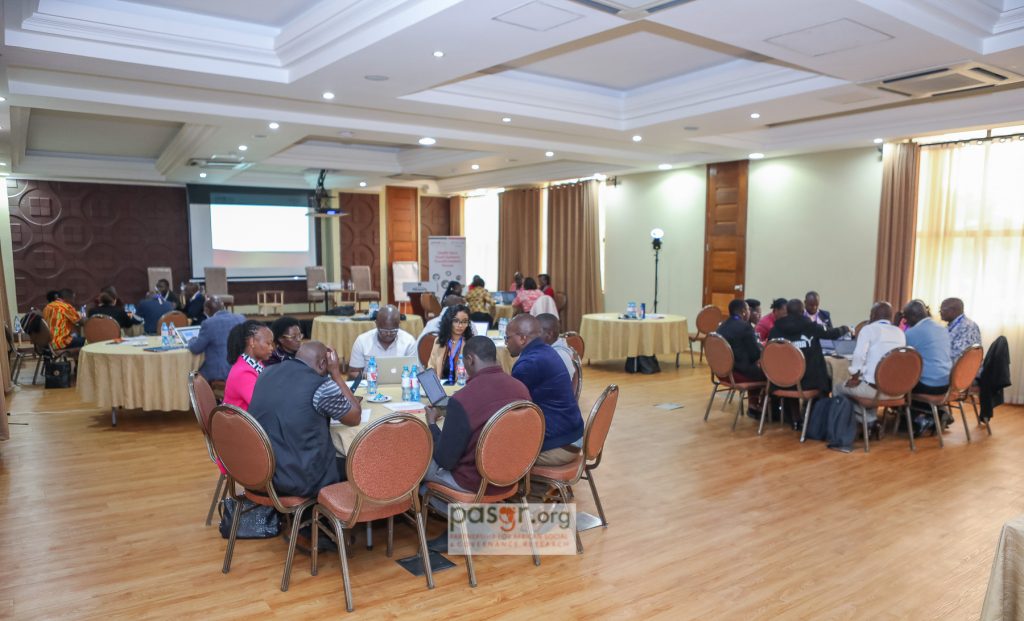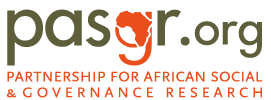Contact Info
- 6th Floor, I & M Building 2nd Ngong Avenue, Upper Hill
- +254 (0)20 2985000; +254 (0)729 111031 / +254 (0)731 000065
- info@pasgr.org
- Office Hrs: Today 9.00am to 6.00pm
In recent years, food security and safety have emerged as pressing global concerns, dominating policy discussions across nations. As populations grow, urban centres expand, and climate change disrupts traditional agricultural patterns, the need to rethink how food is produced, processed, distributed, handled, and consumed has become more urgent than ever. In this context, Food Systems Transformation (FST) is increasingly recognised as a holistic, inclusive approach to achieving food security and safety. Therefore, it is eminent that FST transcends the traditional siloed view of agriculture by considering the complex interplay of nutritional, social, environmental, and economic outcomes across the entire food value chain. This recognition demands policy reforms for integrated responses from multiple sectors, including agriculture, finance, health, infrastructure, and urban planning, to shape resilient and equitable food ecosystems.
The Government of Kenya has made notable strides through policy reforms and programmes aimed at enhancing food security. However, the transition toward a fully integrated food systems approach remains incomplete without an implementation and impact evaluation framework. Notably, policy frameworks across key sectors such as agriculture, finance, urban planning, and environmental management, lack coherence and coordination. This misalignment undermines the country’s broader food security goals and limits Kenya’s ability to respond effectively to new and emerging challenges.
Recognizing this gap, the Partnership for African Social and Governance Research (PASGR), in collaboration with the International Development Research Centre (IDRC), is implementing a Food Systems Transformation Programme designed to strengthen Kenya’s capacity for evidence-informed policy engagement. The project specifically targets strategic stakeholders and leverages the innovative Utafiti Sera model, a community of practice that connects research evidence with policymaking processes. The current focal point for the Programme is Nairobi City County Government (NCCG), where the team has been working to support the development through a participatory review process and updating of the county’s Urban and Peri-Urban Agriculture, Livestock and Fisheries (UPALF) Policy. Originally developed in 2015, the UPALF policy provided a foundational framework for promoting urban agriculture in Kenya’s capital. However, since its inception, the policy landscape has evolved significantly, particularly with the rise of food systems and resilience frameworks.
To ensure the policy remains relevant and effective, PASGR’s Utafiti Sera House convened multiple engagements with stakeholders to synthesize existing evidence and identify critical gaps. A key finding from this synthesis at commencement, was the overemphasis on food production and availability, often at the expense of equally vital aspects in the entire value chain such as food handling, storage, transportation, and traceability. The gap posed serious food safety concerns and hindered the realization of comprehensive food security. The evidence generated continually by the Utafiti Sera House over the past two years points to a need for increased accountability across the food system, from production and handling to distribution and final consumption. Importantly, the evidence demonstrates that food must not be viewed merely as a commodity but as a fundamental human right requiring coordinated governance and multisectoral engagement.
Through the lens of food resilience, Utafiti Sera House members are advocating for a paradigm shift toward circular and generative food systems in Nairobi County government’s approach. This process aims to promote policies that reflect economic principles and agricultural practices that are not only environmentally sustainable but also socially inclusive. These principles emphasize the need to reduce waste, enhance soil regeneration, and design systems that benefit both people and the planet. This comprehensive and future-facing perspective forms the foundation for the ongoing technical review and final drafting of the updated UPALF policy framework.
Driven by co-creation and inclusivity, a policy convening will be held from July 15 – 18, 2025, in Naivasha, Kenya, to refine the draft UPALF policy. This high-level workshop, involving key stakeholders from the NCCG and PASGR, is guided by the Utafiti Sera methodology to incorporate final stakeholder inputs, enhance the quality of the policy document in a participatory process, and produce a final draft that embodies transparency, accountability, and strong ownership across all sectors, ready for public participation and subsequent adoption. It is anticipated that the stakeholders will co-create a policy framework that aligns with Nairobi’s long-term vision for a resilient and sustainable urban food system.

Looking Ahead
Nairobi’s journey toward food systems transformation is a microcosm of broader continental and global shifts. Through its partnerships, inclusive policy processes, and evidence-based strategies, the city is laying a blueprint for how urban centres in Africa can secure the right to food in an era of uncertainty. As Nairobi County government aligns its policies with the realities of climate change, rapid urbanization, and shifting consumer needs, initiatives like PASGR’s FST programme will continue to play a crucial role in ensuring that food systems are not only productive but also equitable, resilient, and safe for all.
A4EA AAU advanced research design African universities agriculture Applied Quantitative Methods APSP ARD CABE call for applications cash transfers COVID-19 employment energy EOI Featured higher education IDS INCLUDE Job opportunity LEAP Africa MMRC MRPP opportunities opportunity PAMOJA TRUST partnerships PASGR PDT pedagogy PedaL press release professional development and training professional training public policy Research research methods scholarships social protection Social sciences University of Ibadan University of Pretoria utafiti sera vacancy Youth employment

6th Floor, I & M Building
2nd Ngong Avenue, Upper Hill
P.O. Box 76418-00508
Nairobi, Kenya
Email: info@pasgr.org
Tel: +254 (0)20 2985000;
+254 (0)729 111031 / +254 (0)731 000065
Legal counsel provided by Hurwit & Associates and Muthoga Gaturu & Co. Advocates
